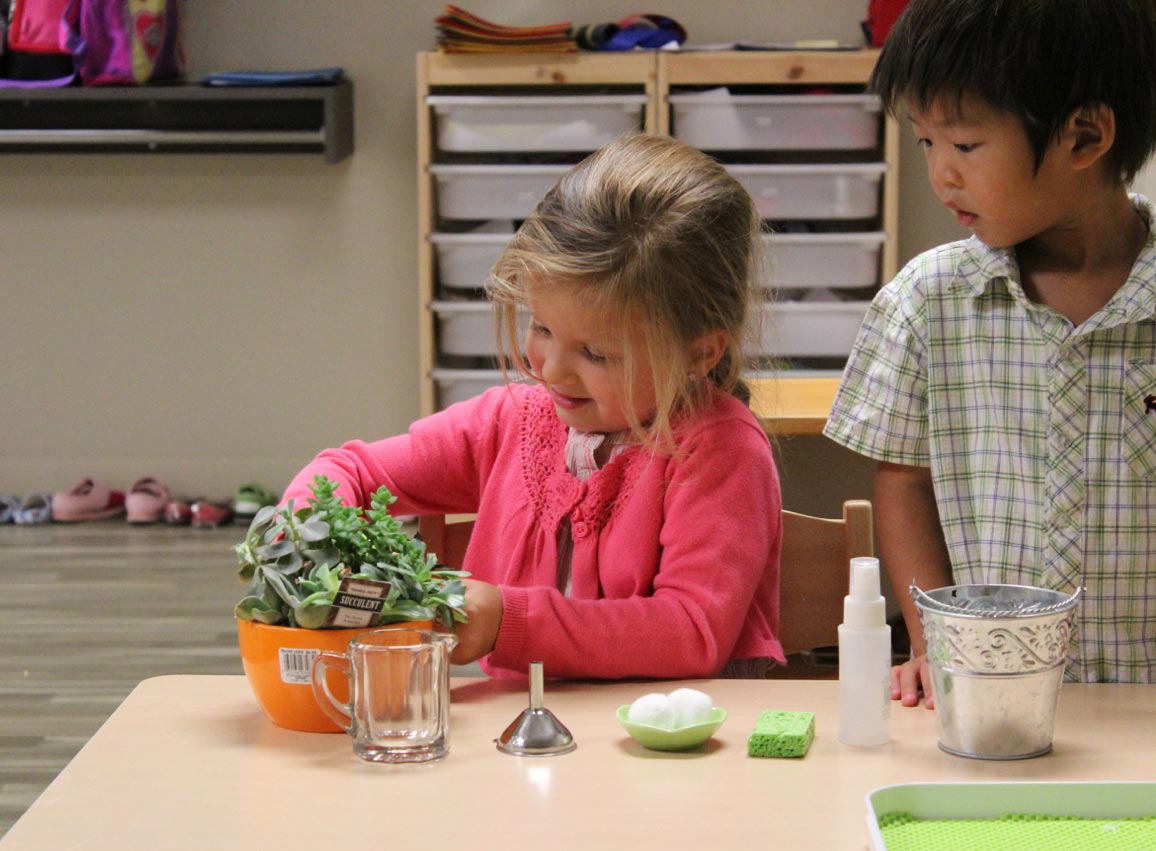
The Dual Purpose of Montessori Preschool Practical Life Activities LePort Montessori Schools
Practical life is a Montessori term used to describe our regular, day-to-day activities. It refers to the daily activities we complete at home, such as cooking, cleaning, laundry, showering, making the bed, etc. Montessori practical life activities can be completed at all ages. Each activity should be scaled down to meet the child's ability level.
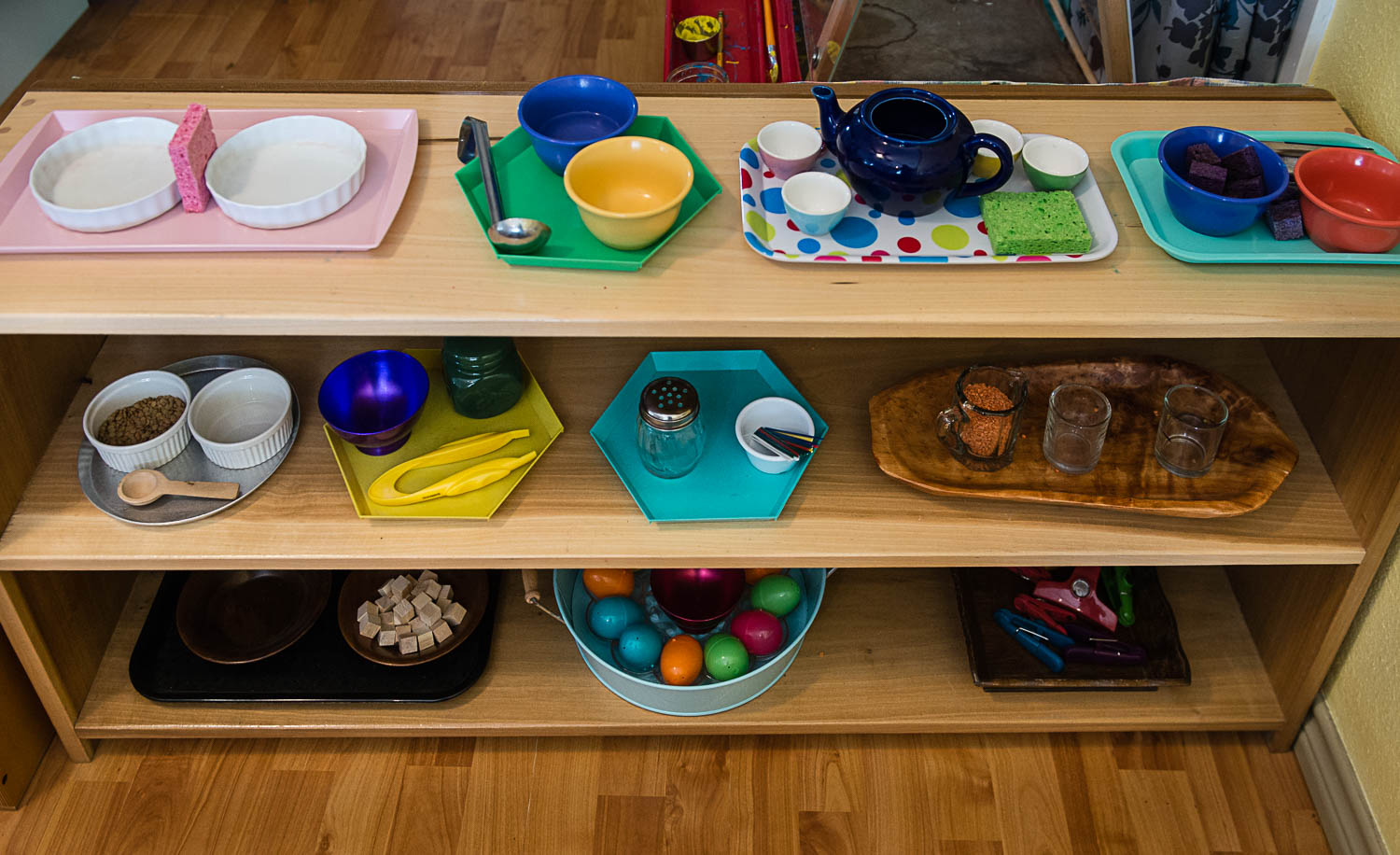
Montessori Practical Life Highland Montessori School
Practical Life activities are divided into three categories: Care of self Care of the environment Care of others (social skills, a.k.a Grace and Courtesy) Each of these categories has specially designed activities with precise steps for the child to follow.

NEW series! Montessoriinspired practical life works for 36 year olds Practical life
Generally the activities of practical life revolve around four areas: Caring for the Self, Caring for the Environment, Grace & Courtesy and Movement of Objects. There is another area which encompasses all four areas and which is a very important part of practical life, namely food.
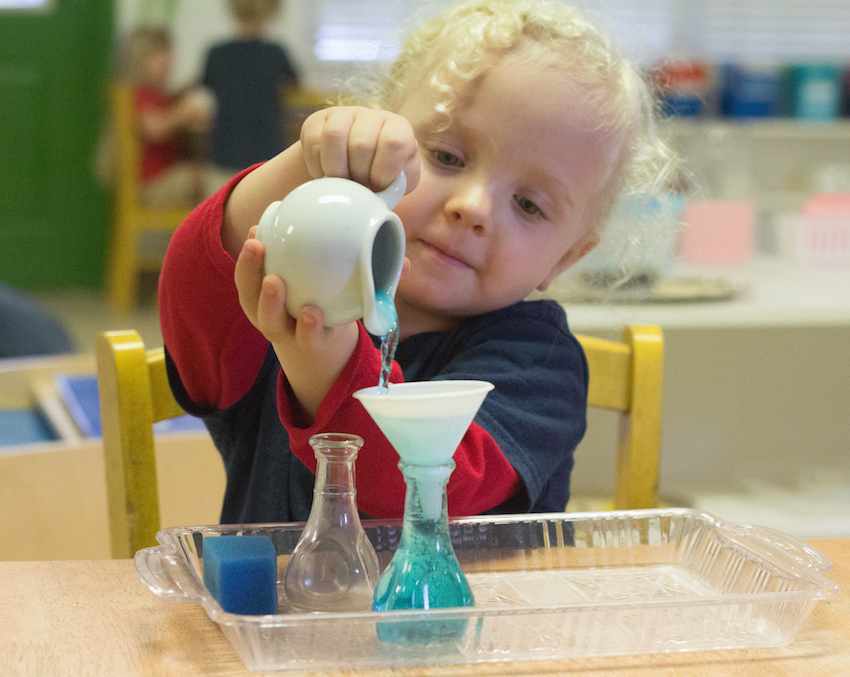
Practical Life Montessori Tampa Montessori Academy of South Tampa
Practical Life activities are the first activities young children are introduced to when they enter the Montessori primary environment. These are activities of real-life that help children feel comfortable and interact appropriately and productively with their environment. (This post contains affiliate links.

Practical life shelf 😊 montessori preschool practicallife schoolstartssoon Montessori
What are Montessori Practical Life Activities? Practical life activities can be taught to kids of any age, even infants, and they change depending on the child's development. These activities are based on real life tasks. For little ones it may start with things as getting dressed or helping to wash up.
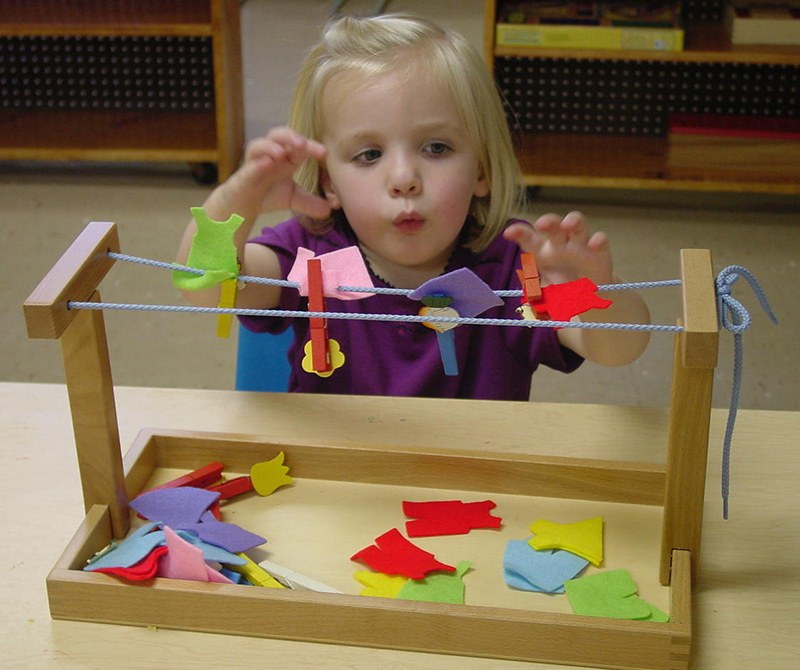
The Importance and Characteristics of Practical Life Activities SpringStone Montessori Preschool
Practical life in Montessori is purposeful activity, develops motor control and coordination, and develops independence, concentration, and a sense of responsibility. The exercises in practical life cover two main areas of development: care of self, and care of the environment. What are practical life activities?

practical life montessori activities Micki Kenney
The four aspects of practical life in Montessori are care of the self, care of the environment, grace and courtesy, and control of movement. As the title suggests, we'll explore how each of these categories allows children to grow in a productive environment.
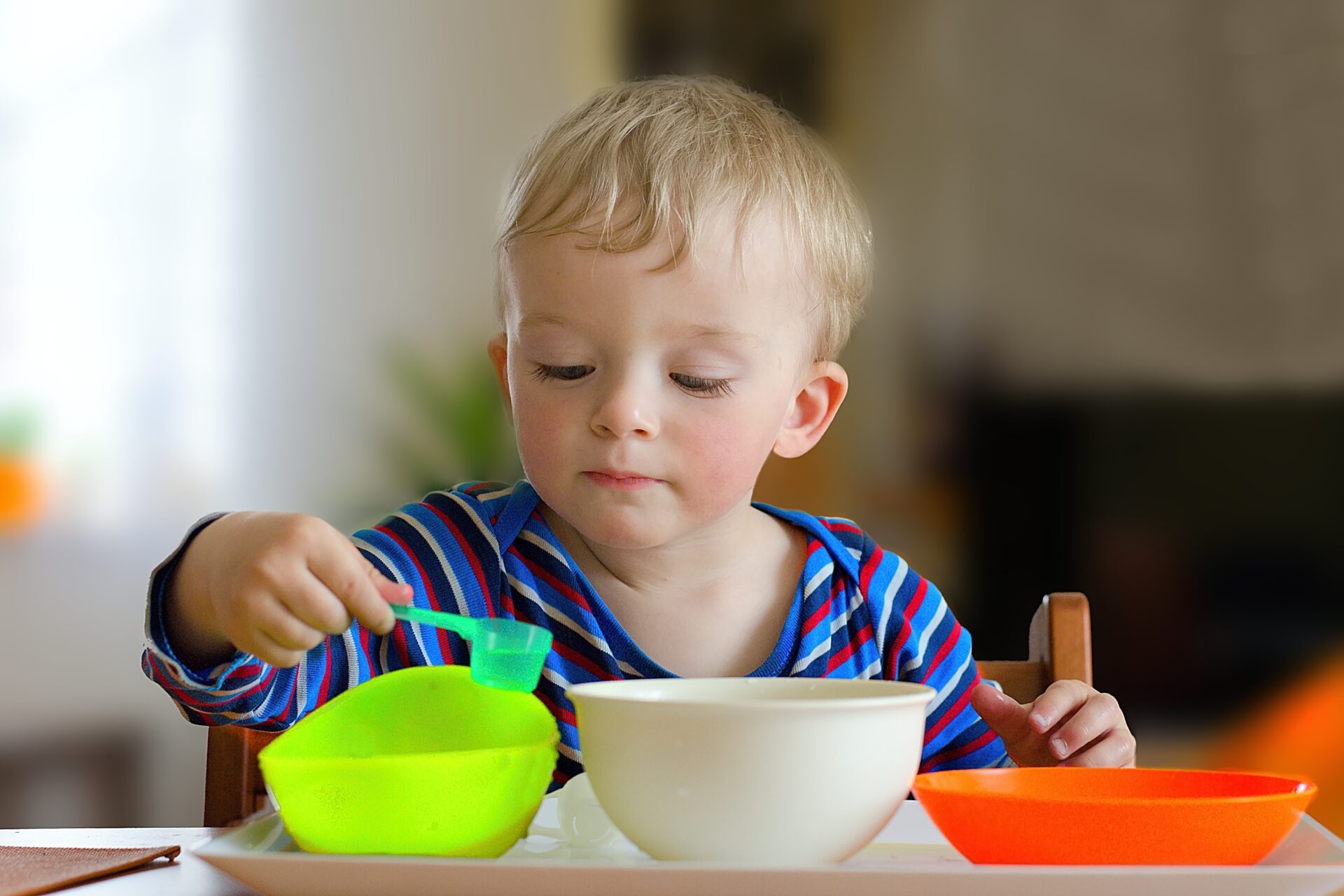
Montessori Practical Life Activities List 50 Activities — The MontessoriMinded Mom
In the world of Montessori education, fostering independence and responsibility in children is a fundamental goal. The Montessori method, designed by Dr. Maria Montessori, places a strong emphasis on nurturing these qualities from a young age. One of the most effective ways this is achieved is through practical life activities.

Raising a LowMedia Toddler Ideas for Toddler Montessori Activities
Sit on the Line Sit/Walk Next to the Line Clapping Hands or Tapping Sticks to Music Dancing without Falling Outdoor Play - Climbing Enjoying Daily Walks Care for Self Feeding Self with Fork, Spoon, & Cup Dressing Frames and Dressing Self - Zipper, Shoes, Velcro, Shirt, Pants, Underwear, Jacket Using Toilet, Wipe, & Flush
Montessori Practical Life Course Part 1 Rumi Montessori Training
The Montessori pedagogy and programming is consistent with the Ministry of Education policies statement as set out in "How Does Learning.. Practical Life: Activities that help children to develop fine motor skills, eye and hand coordination, independence, concentration, confidence, and self-esteem. Sensorial Activities:

Montessori inspired September practical life and fine motor activities for preschoolers by Welco
1. Preliminary Activities Pouring Water Items Needed How to Conduct Water Pouring Activity Holding a Spoon What Do You Need? How to Present the Activity Moving a Chair Carrying a Jug Walking or Sitting in a Line Carrying a Cup Learning Home Address 2. Self-Care Activities Washing Hands Here Is How You Can Demonstrate It
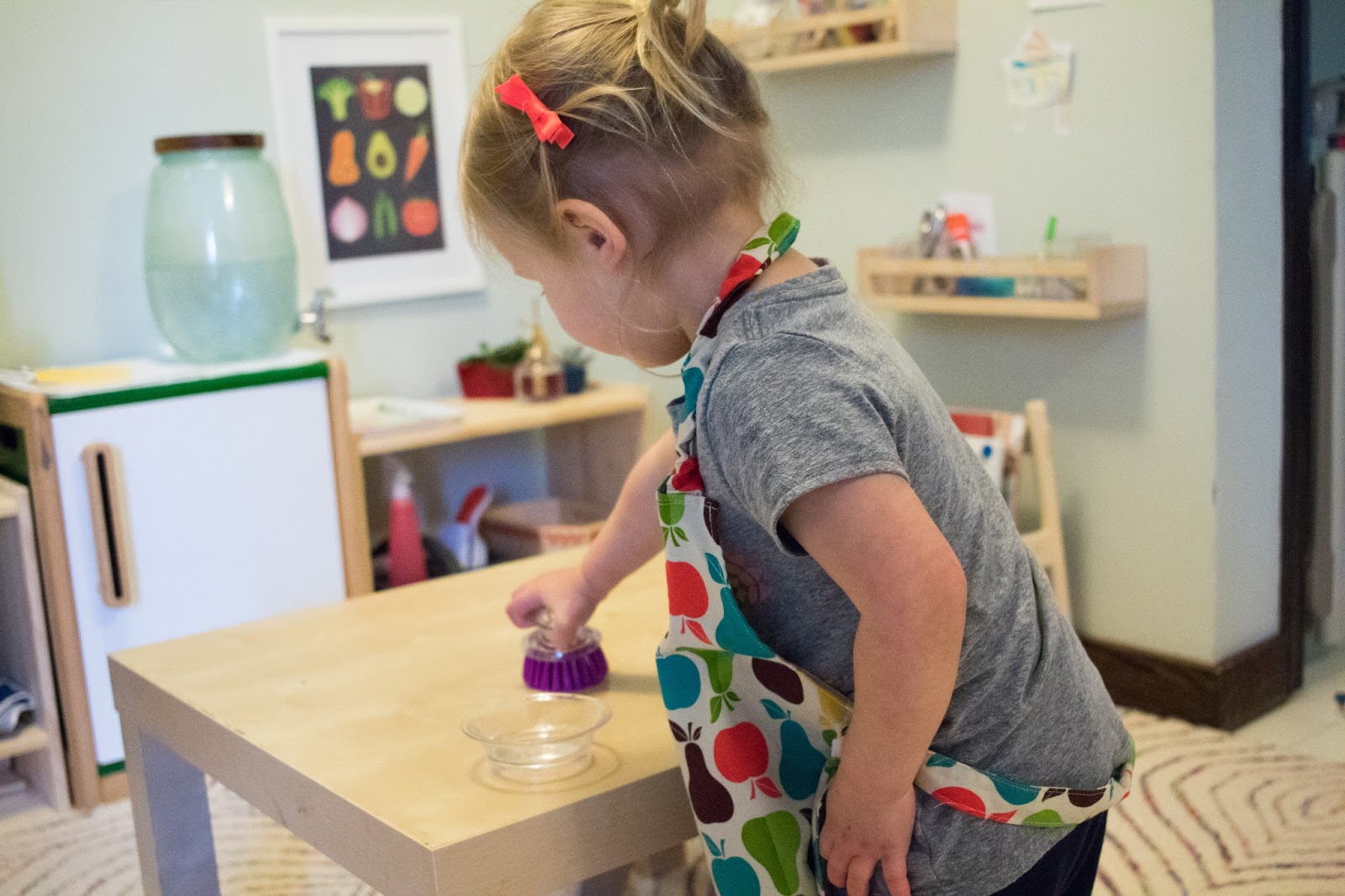
Introducing Practical Life to Montessori Babies and Toddlers
The Montessori education system nurtures a child's mind, body, and spirit, and focuses on teaching practical life skills as well as teaching through the child's senses (touch, taste, sound, etc.). What Are the Benefits of Montessori Education? It focuses on key developmental stages.
Six Useful Practical Life Activities to Try how we montessori
The characteristics of Montessori Practical Life Activities are: Reality: The activities should promote real-life activities that promote self-care, self-hygiene, and care for the environment. Limitless Learning: There are no rigid guidelines for conducting practical activities. The activities should not be limited.

Montessori practical life, Montessori activities, Practical life activities
The Practical Life activities in the Montessori Curriculum encompass five essential areas: Preliminary Exercises, Care of Self, Care for the Environment, Grace and Courtesy, and Control of Movement. Preliminary Exercises Involves fundamental movements found in all societies, such as pouring, folding, and carrying. Care of Self includes

Practical Life Skills Montessori, Activities Montessoriseries
Practical life activities benefit the child's fine motor skills development and help the child become independent of an adult's help. These activities can be presented on a tray, or simply put out for the child to discover on the floor. Some of these Montessori practical life activities also are done as a family — like our first one below!
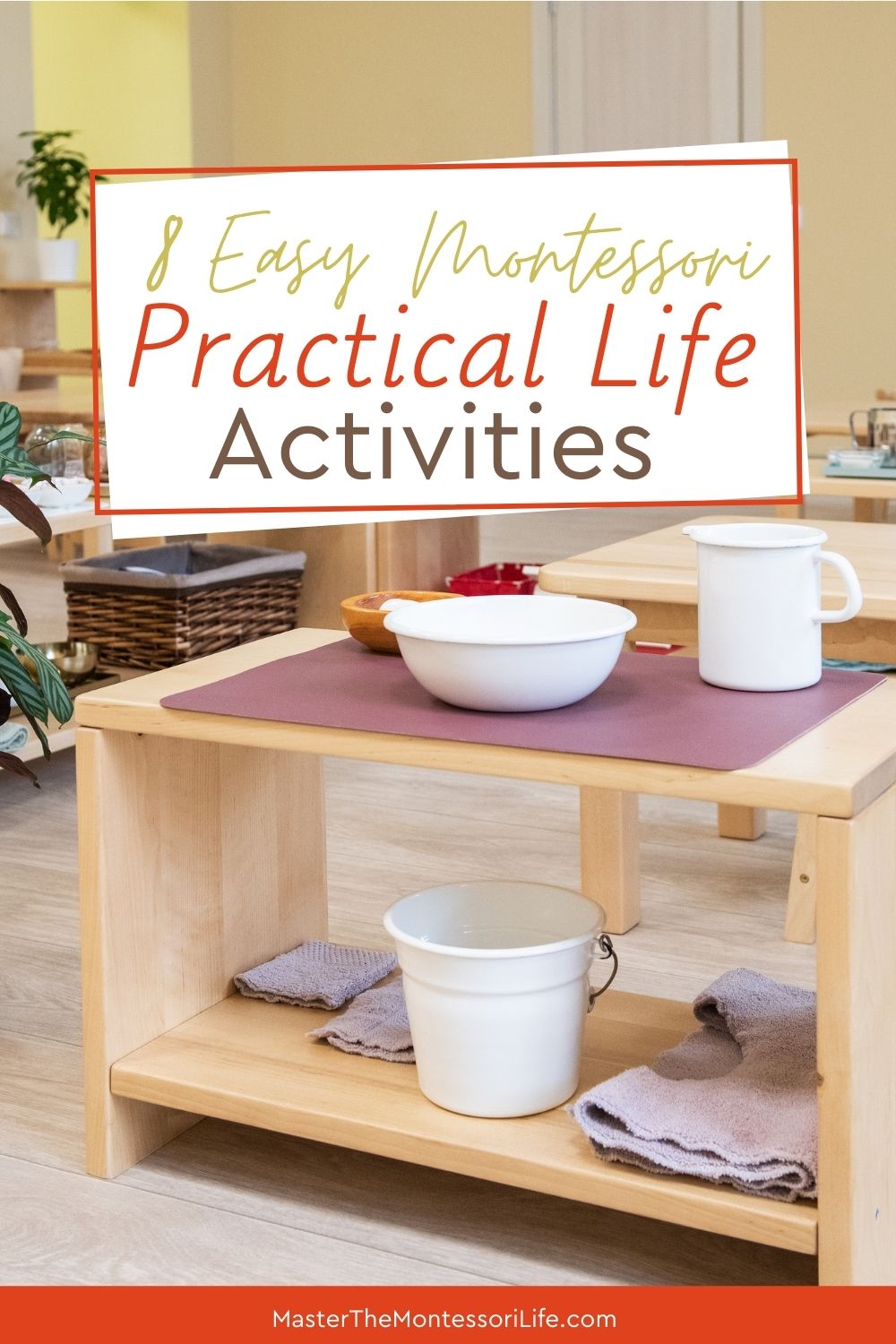
8 Easy Montessori Practical Life Activities Master the Montessori Life
Montessori Practical Life Activities, such as pouring, spooning, washing, and food preparation, can help a child develop essential skills, such as independence, concentration, a sense of order, and confidence. These activities also help them refine fine motor skills, which are necessary for more complex tasks in the future, such as writing and.